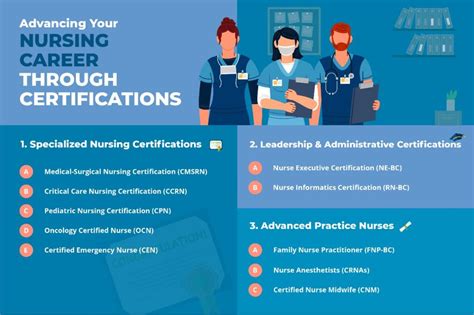Intro
Discover the rewards of a career in home health care as a registered nurse. Explore the demands, benefits, and growth opportunities in this field. Learn about the skills and qualifications required, job responsibilities, and salary ranges. Get insider tips on how to succeed in registered nurse jobs and find job openings in home health care.
The demand for healthcare services is on the rise, driven by an aging population and an increased focus on preventive care. As a result, the home health care industry is experiencing rapid growth, creating a wide range of job opportunities for registered nurses (RNs). In this article, we will explore the world of registered nurse jobs in home health care, providing a comprehensive guide to help you navigate this exciting and rewarding career path.

Working as a registered nurse in home health care offers a unique blend of autonomy, flexibility, and job satisfaction. Unlike traditional hospital settings, home health care allows RNs to work one-on-one with patients in the comfort of their own homes, building strong relationships and making a tangible difference in their lives. If you are a compassionate and driven RN looking for a new challenge, a career in home health care may be the perfect fit.
What is Home Health Care?
Home health care is a type of medical care provided in the patient's home, rather than in a hospital or clinical setting. This can include a range of services, such as wound care, medication management, physical therapy, and palliative care. Home health care is often prescribed by a physician and is designed to help patients recover from illness or injury, manage chronic conditions, or maintain their independence.
Types of Registered Nurse Jobs in Home Health Care
There are several types of registered nurse jobs in home health care, each with its own unique set of responsibilities and requirements. Some of the most common roles include:
Home Health RN
Home health RNs provide medical care to patients in their homes, working under the direction of a physician. This can include administering medications, changing wound dressings, and monitoring vital signs. Home health RNs may also provide education and support to patients and their families, helping them to manage their conditions and maintain their independence.
Hospice RN
Hospice RNs work with patients who are terminally ill, providing palliative care and support to help them manage their symptoms and improve their quality of life. Hospice RNs may work in patients' homes, nursing homes, or hospice centers, and often work closely with other healthcare professionals to coordinate care.
Case Management RN
Case management RNs work with patients and their families to coordinate care and services, helping them to navigate the healthcare system and access the resources they need. This can include developing care plans, communicating with other healthcare professionals, and advocating for patients' needs.
Telehealth RN
Telehealth RNs use technology, such as video conferencing and phone calls, to provide medical care and support to patients remotely. This can include monitoring patients' conditions, answering questions, and providing education and guidance.

Benefits of Working in Home Health Care
Working as a registered nurse in home health care offers a range of benefits, including:
- Autonomy: Home health care RNs often work independently, making decisions and taking actions without direct supervision.
- Flexibility: Home health care RNs may have more control over their schedules and workload, allowing for a better work-life balance.
- Job satisfaction: Home health care RNs often report high levels of job satisfaction, citing the opportunity to make a real difference in patients' lives.
- Variety: Home health care RNs may work with a range of patients, from pediatrics to gerontology, and may encounter a variety of medical conditions and challenges.
Requirements for Registered Nurse Jobs in Home Health Care
To work as a registered nurse in home health care, you will typically need to meet the following requirements:
- Education: A bachelor's degree in nursing (BSN) or an associate's degree in nursing (ADN) is typically required.
- Licensure: You must be licensed as a registered nurse (RN) in the state where you plan to work.
- Experience: Many home health care agencies require RNs to have at least one year of experience in a hospital or clinical setting.
- Certifications: Some home health care agencies may require RNs to have specialized certifications, such as hospice or palliative care certification.

Tips for Getting Started in Home Health Care
If you are interested in pursuing a career in home health care, here are some tips to get you started:
- Research: Learn as much as you can about home health care and the different types of RN jobs available.
- Network: Reach out to other RNs who work in home health care and ask for their advice and insights.
- Gain experience: Consider volunteering or working in a hospital or clinical setting to gain experience and build your skills.
- Get certified: Consider obtaining specialized certifications, such as hospice or palliative care certification, to increase your job prospects.
Conclusion
Working as a registered nurse in home health care can be a rewarding and challenging career, offering a unique blend of autonomy, flexibility, and job satisfaction. By understanding the different types of RN jobs in home health care, the benefits of working in this field, and the requirements for getting started, you can take the first step towards a fulfilling and successful career.
Frequently Asked Questions
What is home health care?
+Home health care is a type of medical care provided in the patient's home, rather than in a hospital or clinical setting.
What are the different types of RN jobs in home health care?
+Some of the most common types of RN jobs in home health care include home health RN, hospice RN, case management RN, and telehealth RN.
What are the benefits of working in home health care?
+The benefits of working in home health care include autonomy, flexibility, job satisfaction, and variety.
